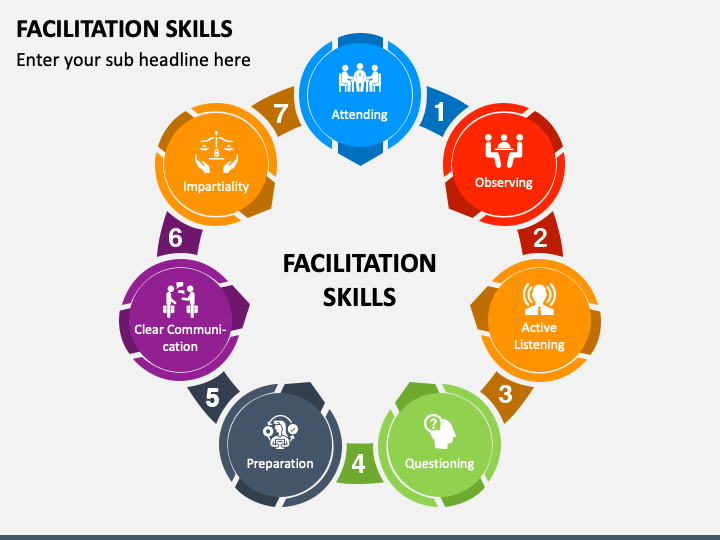EMPLOYEE SKILL TRAINING LLC
Facilitations Skills
Facilitations Skills
Couldn't load pickup availability
Facilitation is often referred to as the new cornerstone of management philosophy. With its focus on fairness and creating an easy decision-making process. Creating a comfortable environment through better facilitation will give your participants a better understanding of what a good facilitator can do to improve any meeting or gathering.
The Facilitation Skills workshop can help any organization make better decisions. This workshop will give participants an understanding of what facilitation is all about, as well as some tools that they can use to facilitate small meetings. A strong understanding of how a facilitator can command a room and dictate the pace of a meeting will have your participants on the road to becoming great facilitators themselves.
Course Outline:
Module One: Getting Started
• Icebreaker
• Housekeeping Items
• The Parking Lot
• Workshop Objectives
Module Two: Understanding Facilitation
• What is Facilitation?
• What is a Facilitator?
• When is Facilitation Appropriate?
Module Three: Process vs. Content
• About Process
• About Content
• A Facilitator’s Focus
Module Four: Laying the Groundwork
• Choosing a Facilitated Approach
• Planning for a Facilitated Meeting
• Collecting Data
Module Five: Tuckman and Jensen’s Model of Team Development
• Stage One: Forming
• Stage Two: Storming
• Stage Three: Norming
• Stage Four: Performing
Module Six: Building Consensus
• Encouraging Participation
• Gathering Information
• Presenting Information
• Synthesizing and Summarizing
Module Seven: Reaching a Decision Point
• Identifying the Options
• Creating a Short List
• Choosing a Solution
• Using the Multi-Option Technique
Module Eight: Dealing with Difficult People
• Addressing Disruptions
• Common Types of Difficult People and How to Handle Them
• Helping the Group Resolve Issues on Their Own
Module Nine: Addressing Group Dysfunction
• Using Ground Rules to Prevent Dysfunction
• Restating and Reframing Issues
• Getting People Back on Track
Module Ten: About Intervention
• Why Intervention May Be Necessary
• When to Intervene
• Levels of Intervention
Module Eleven: Intervention Techniques
• Using Your Processes
• Boomerang it Back
• ICE It: Identity, Check for agreement, Evaluate how to Resolve
Module Twelve: Wrapping Up
• Words from the Wise
• Review of Parking Lot
• Lessons Learned
• Completion of Action Plans and Evaluations
Share



